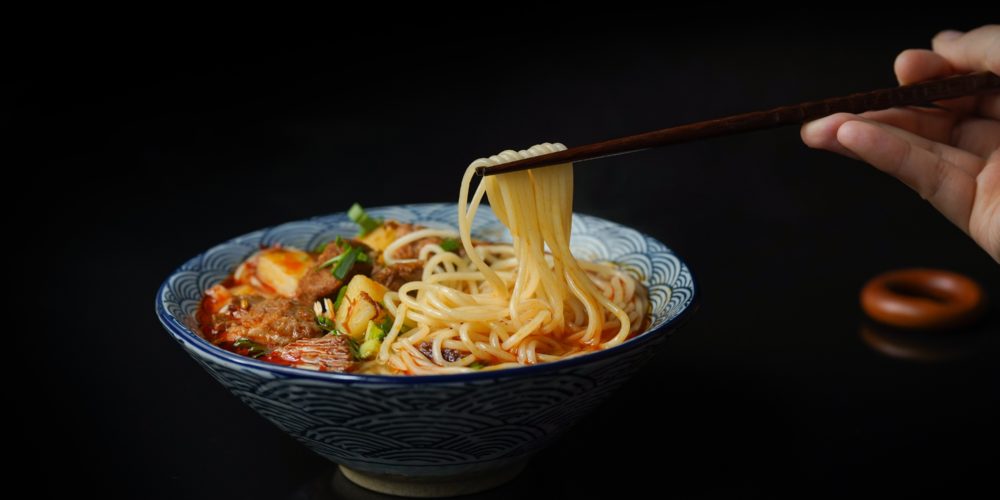How honest are you about your products?

Have you ever come across a restaurant that says these things about some of its menu items?
“This one is not THAT good.”
“This one is NOT authentic…”
“I am surprised some customers still order this plate.”
Those are actual dish descriptions on the menu of the Aunt Dai Chinese restaurant in Montreal. The owner, Feigang Fei, puts bracingly honest comments about his own food right on the menu.
He should be bankrupt by now, right? Nope, his menu has gone viral. Customers began posting the descriptions on social media. Now Mr Fei has a lot more customers, all wanting to come and taste the food to see if it’s…really not that good! Harvard University has even reportedly decided to archive the menu in its Schlesinger Library.
Since Mr Fei now has a measure of internet fame, you may wonder if this was just a PR stunt. To me, he sounds like that rare creature, a person who says it like it is. “A lot of people want to be the best,” he said, “and we are simply not the best. We just try to be a little bit better every day. And that’s how I see it.”
Here’s how I see it: in a world of liars, the honest person is valuable!
I don’t think Feigang Fei planned to go viral. He was just being his quirky self, right there on his menu. A blogger happened to see the menu, tweeted it, and bingo. He’s famous. Why should this make him famous, though? Only because this sort of thing is so rare.
Modern life seems to school us never to diss ourselves. We must always put up a front; always manage our image; always pretend everything about us is excellent, all the time. And it really isn’t.
You have to pretend all your products are the best in the market, nay, the best in history, even. You have to pretend your workplace is world-class and employees the happiest in the world. You have to pretend you are the most devoted and pious person in church. You have to pretend your personal life is exciting and adventurous and full of loving support.
And yet. Most products are mediocre at best. Most workplaces are places of relentless tedium. Most devotees are full of sin and pettiness. Most personal lives are boringly predictably banal.
If everything was excellent all the time the world would be a very different place. But we all know what it is, and what we are. We are humans, flawed humans, full of small thoughts and mediocre outputs; full of failed strategies and dud projects; full of shortcuts and evasions. We do not become better just by pretending there’s nothing wrong with us. We become better only be facing ourselves and accepting our limitations.
Great CEOs make mistakes all the time, often every day. Great businesses have many botched initiatives hidden in the bushes behind HQ. Great political leaders read many situations wrong. Great relationships have many missteps and false turns.
To err is human, after all. When we place a veil of false perfection over ourselves and our products, we are merely hiding the truth or delaying its disclosure. When we portray ourselves using frilly words and fluffy imagery, we are merely trying to gloss over our imperfections and uglinesses.
We can only become better once we accept what is not good enough. Some of the best chefs I have met are the ones who are never happy with their own dishes – not the ones who think their laziest offering is world-beating. Some of the best leaders I have met are the ones who sit with me and discuss their own shortcomings – not those of their employees and board members.
Even if we don’t have the nerve to admit our faults and frailties to outsiders – our investors, customers, employees, congregants, electors – we need to be able to admit them to ourselves and our nearest and dearest. Fake fronts are a great obstacle to personal growth. Eventually we start believing in our own myths.
The honest position, for all and any of us, is as follows: this is not the best I can do; there are people who do this better; I must try to get better at it; I must put in the work and application needed to improve, little by little.
Authentic excellence comes this way. It does not come from front-loading everything with hype; it does not come from faking before making.
(Sunday Nation, 14 March 2021)

Buy Sunny Bindra's new book
The X in CX
here »
Popular Posts
- Make this your year of being boringJanuary 4, 2026
- Can we please stop with the corporate jargon?January 11, 2026
- My books of the yearDecember 14, 2025
- Confessions of an explaining personDecember 7, 2025
- Here’s why you should become foolishNovember 30, 2025















